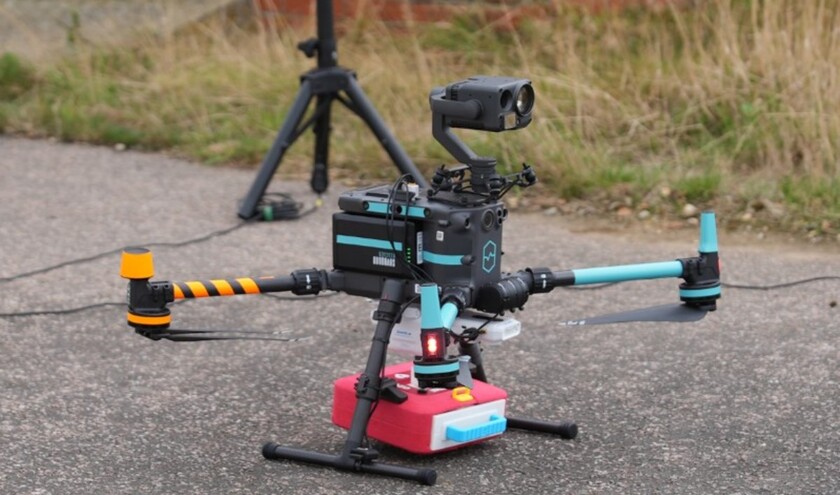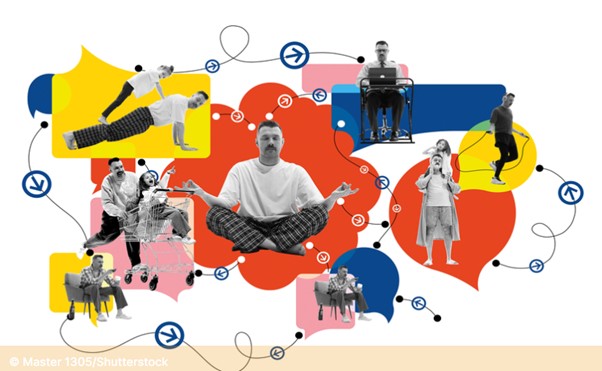In the UK, there are more than 40,000 out-of-hospital cardiac arrests each year, but fewer than 10% of people survive. Early cardiopulmonary resuscitation (CPR) and restarting the heart with an automated external defibrillator (AED) can double the chance of survival.
Experts at the University of Warwick partnered with the Welsh Ambulance Services University NHS Trust and autonomous drone specialists SkyBound for the NIHR-funded study. They flew defibrillators to a training exercise in a remote countryside location where ambulance crews would usually be delayed in reaching by road.
The 3D Project saw researchers design a system to deliver an AED attached by a winch to a DJI M300 drone following a 999 call. Skybound's automated drone software activated and controlled the drone's flight. The drone lowered the AED to a member of the public to help them carry out resuscitation on a CPR mannequin. Ambulance service call handlers gave instructions to the bystander throughout.
Researchers assessed real-time communications between the drone pilot, call handler and bystander. Experts observed how those taking part behaved and interacted with each other. They also timed how quickly the mock cardiac arrest patient would be reached.
The study findings show the technology is very promising. The drone flew autonomously and safely, with good links to the ambulance service, and participants reacted positively to drone delivery of the AED.
It took 2.18 mins from emergency call to drone takeoff. However, there were delays once the drone had arrived on scene. It took a further 4.35 mins after the drone had arrived before a shock was given to the simulated patient using the AED.
Hands-off CPR time was 2.32 mins, but only 0.16 mins of this was spent retrieving the AED. Bystanders retrieved the AED safely and interacted well with the drone, but often struggled using the AED. Bystanders and call-handlers need more support to use drone-delivered AEDs, researchers say.
Chief investigator Dr Christopher Smith, from the University of Warwick, said: ‘We have successfully demonstrated that drones can safely fly long distances with a defibrillator attached and maintain real-time communications with emergency services during the 999 call.
'We are in a position where we could operationalise this system and use it for real emergencies across the UK soon.'
The next stage will be funding larger studies to test the technology and evaluate whether it can be used in the NHS. Currently, drones are used to deliver defibrillators in some circumstances in Denmark and Sweden.
Professor Mike Lewis, NIHR scientific director for innovation, said: ‘In an emergency situation, time is of the essence and it's crucial that bystanders can help before ambulance crews arrive.
‘That's why it's so exciting this innovative study is investigating if emergency services can harness drones to deliver defibrillators to help improve survival. This demonstrates how health and care research can deliver high tech solutions to improve health and care services, and powers the country's life sciences sector and technical advantage.'
Carl Powell, clinical lead (acute care) at the Welsh Ambulance Service, added: ‘We're grateful to NIHR and others for funding this research, which has demonstrated that the technology shows a great amount of promise.
‘We'll continue to work with partners to further explore and test how drone-delivered defibrillators could be harnessed by the NHS.'
Health minister, Stephen Kinnock, said: ‘Drone technology has the potential to help reach patients faster, especially in rural communities. This government is backing our country's leading scientists to research, test, and develop new forms of emergency healthcare which have the potential to save lives.'



